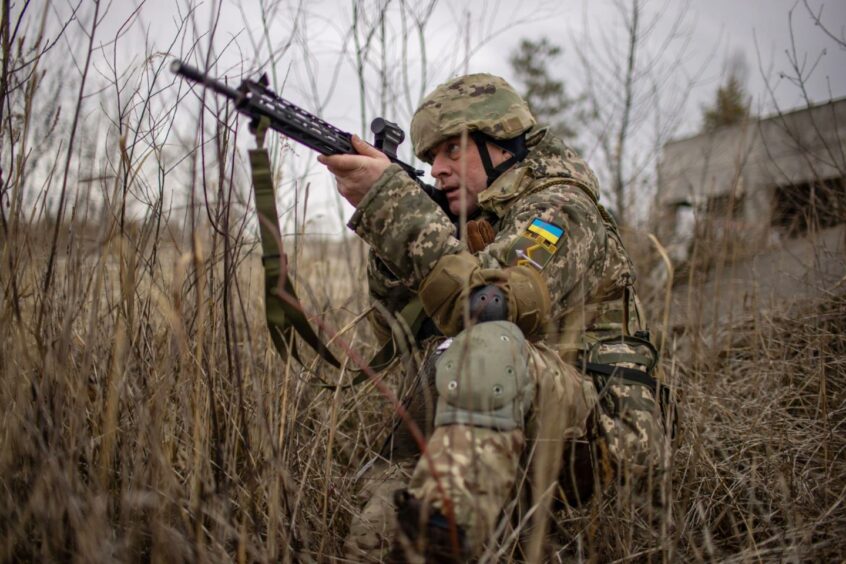 © Bloomberg
© Bloomberg A global energy crisis looks likely to unfold after oil prices spiked above $100 per barrel yesterday as Russian tanks and troops moved closer to Ukraine’s capital.
In response to the invasion, the US imposed its toughest ever sanctions on Russia. However, energy supplies were spared as restrictions on currency clearing would include carve-outs for energy payments, a crucial source of revenue for Moscow.
Still, Russian energy supplies to the West, particularly Europe, remain in the crosshairs.
“Full-scale military conflict between Russia and The West is unlikely, but a deep economic war is almost inevitable. Russia cannot win an outright economic war, but it does have a major weapon to wield – oil and gas exports. Demand for oil and gas in the West is only rising, and a global energy crisis is likely to unfold,” Jarand Rystad, chief executive of energy consultancy Rystad Energy, said in a note.
“Russia’s actions took international commodity markets off guard, evidenced by the large price fluctuations witnessed Thursday. Already strained markets are becoming further stretched as significant oil and gas volumes are now at risk,” he added.
Vandana Hari, founder of Singapore-based Vanda Insights, which tracks energy markets, said “the worst-case scenario is unfolding.”
“Crude’s rally may have only just begun, as the full impact on global oil and gas supplies is yet to be seen and factored in. Prices may continue to bound higher with every unfortunate turn of events. The door to a diplomatic de-escalation is not firmly shut, but it will take some major efforts to kick it open again,” added Hari.
“Tools and resources to ameliorate further tightness in global oil and gas supply are extremely limited. Should the Kremlin decide to cut off gas exports to Europe, all the world’s gas producers put together do not have the spare capacity to plug the gap,” she warned.
Rystad said the escalation of the Russia-Ukraine crisis immediately jeopardises up to 1 million barrels per day (b/d) of crude supplies that transit through Ukraine and the Black Sea, but the long-term disruptions could be far more significant. Rystad Energy’s simulations show that oil prices could surge to around $130 per barrel, with consumers feeling the squeeze at the gas pump and in their power bills. “The reality is that significantly higher prices are on the horizon in Europe and overseas,” said the consultancy.
“A complete halt to gas exports from Russia is highly unlikely, but gas piped through Ukraine – which represents 8% of European supply – is very much at risk. Russian gas accounts for over 30% of Europe’s demand, and other potential supply sources are inadequately prepared to bridge the gap. On the other side, Russian gas exports bring in more than $300 million for the Kremlin each day – revenues they cannot afford to lose. Germany’s suspension of the Nord Stream 2 pipeline further complicates matters and increases the pressure on the continent to look for other sources to replace those volumes,” noted Rystad.
Simon Flowers, chairman of energy research company Wood Mackenzie said that “Russia has timed its move from a position of strength. With the global economy surging, the world needs all the commodities it can get its hands on, not least Russia’s exports of gas, oil, coal metals, petrochemicals and fertiliser. Sanctions on exports of these essential commodities are unthinkable – there are no quick fixes should Russia’s supplies be cut off. OPEC has already signalled it won’t ramp up production to lower prices. But in the unlikely event Russian oil supply is cut, we’d expect the organisation to consider supplying extra oil to offset the loss to avoid a global economic crisis.”
“High commodity prices, inflated by the crisis, are a boon for Russia. Higher export revenues will boost an existing fiscal surplus and swell buoyant financial reserves,” said Flowers.
